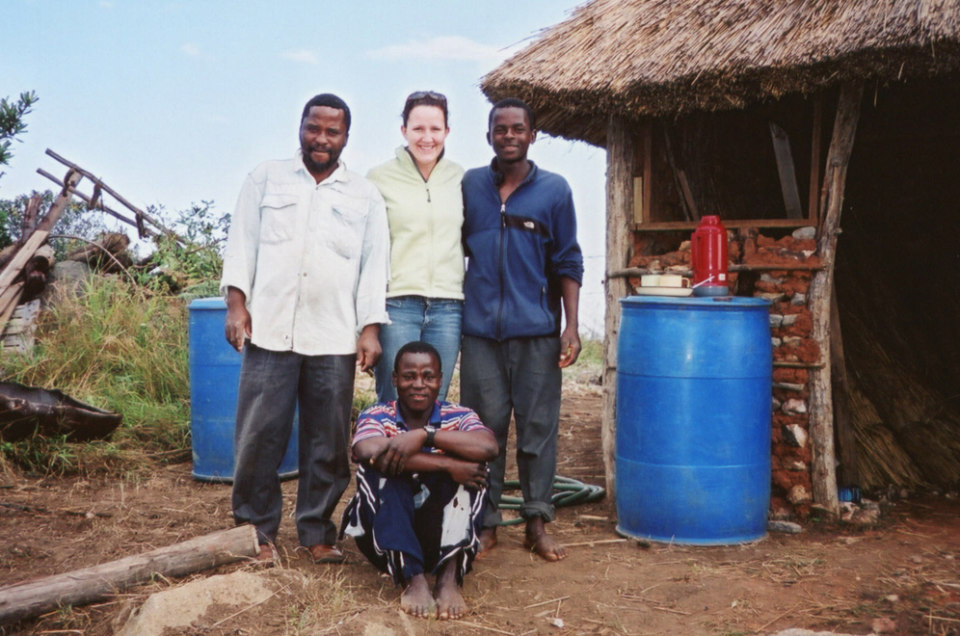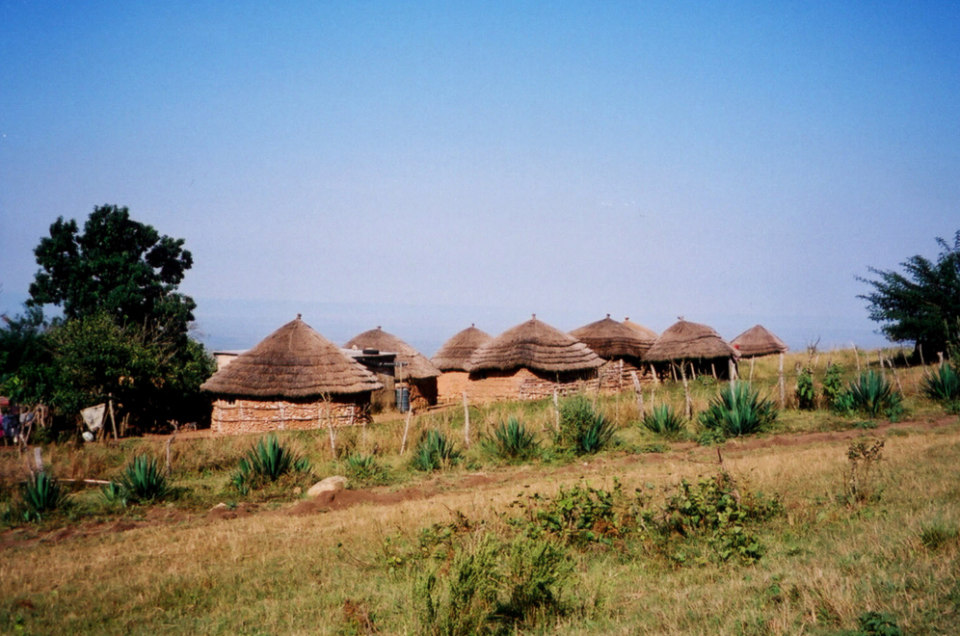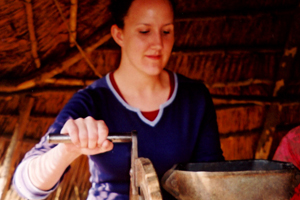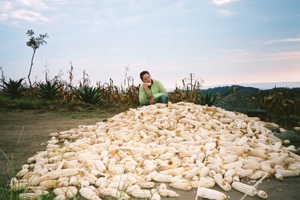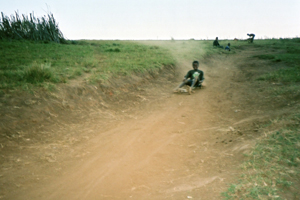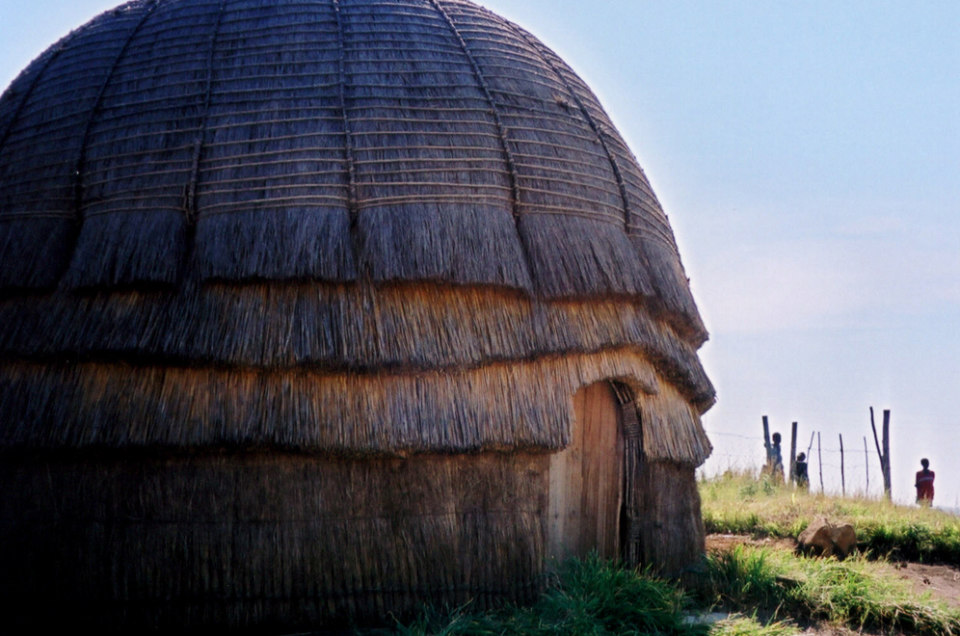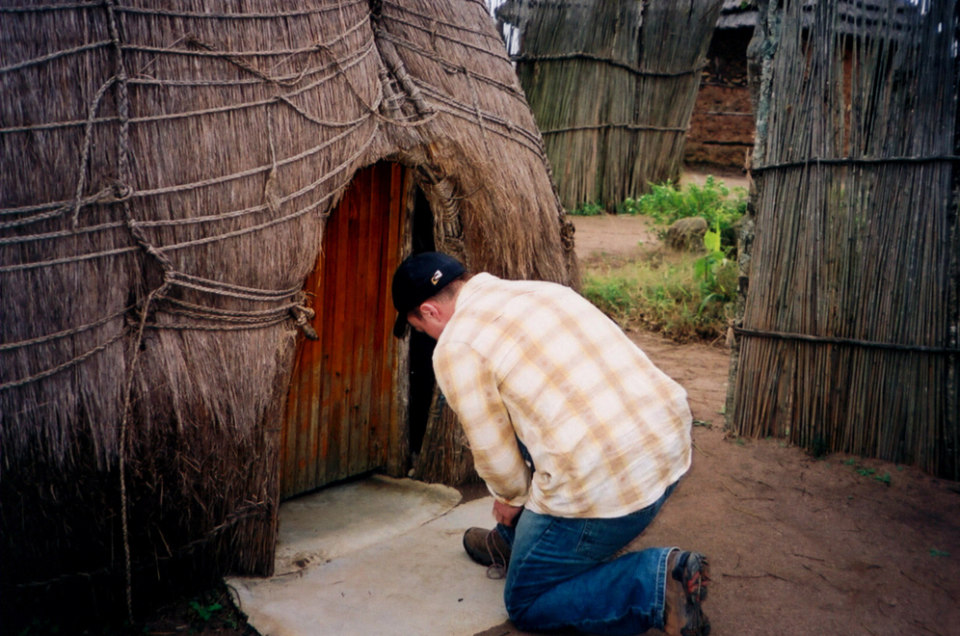My excursion into Swaziland started off with a tumultuous assortment of shenanigans. After being bounced from one official to the next at the border crossing, I was then stopped, dragged into the bushes and ticketed by the police for doing 60 km/h in a “Not 30 km/h Zone” (if you’ve ever seen one of those signs, you’ll know what I’m talking about).
After eons of waiting, the police finally arrived, took care of the accident scene and then had me follow them back to the station for a statement. In a bizarre twist which would probably only happen in Africa, they decided to give me a police escort to my final destination: ‘Myxo’s Backpackers, a local hostel that would act as a staging point for my wife, Erin, and I to carry out a traditional Swazi village-stay. So with lights ablaze, we tore through the city, running all the stop signs, speeding headlong just to get me to the hostel.
After getting a goodnight’s sleep, Erin and I were picked-up at sunrise in a dilapidated Nissan Multi (with bald tires that needed to be refilled at every stop, using a bicycle pump) and were whisked away to the countryside village. On our way, however, we stopped at a local market to eat breakfast and buy some items for the village dinner.
Breakfast was a bowl of porridge-like sorghum-mealie; bitter to no end unless liberally doused in cane sugar. Dinner fixings included a small sliver of beef and a massive amount of onions and tomatoes.
Upon arriving at the village, we were immediately greeted by all who called it home and given a tour. As I strolled the village, taking in the countryside, the thatched huts and crops of maize, and while inhaling the thick scent of exotic wood burning in open-pit fires, two thoughts flooded my mind: The first being that the view from the village was nothing short of spectacular, perched on the edge of an escarpment, with a valley floor stretching miles into the distance. The second thought, was polar opposite and stupidly giddy: I could barely contain my glee at getting to stay in a grass-thatched, traditional hut. I still feel silly just thinking about it but I believe my excitement grew from some sort of internal place that longed to reconnect to Africa. The place where my, your and all of our ancestors came from. The ‘cradle of life’, or so they say. And apparently, sleeping on the ground, under some thatchy grass is what it would take.
The next stop was to wander over to an adjacent village to marvel at the architecture of traditional animal pens made only from wooden branches, used to house animals such as chickens and goats. In this same village, we were lucky enough to catch a small group of children engaging in a quintessentially African-style of play: racing wooden bicycles and go-carts down a hill, which in this case, happened to be at break-neck speeds, directly toward a fence. Watching kids careen-about on carved bicycles made my ‘rough and tumble’ days on the urban playground seem like a fluffy bunny.
After the tour and meeting all the residents of the village, we were rushed off to help with dinner, as it was suggested that preparations be completed before sundown, to help avoid burning through the diesel used to power the lights. Once the prep was done and everyone was settled around the fire in the common-hut, dinner itself proved hilarious, at least for me but not so much for my wife. If there’s one thing that Erin fears more than Africa’s dangerous critters, it’s the copious amounts of onions eaten across the continent. Wide-eyed was her expression while she was ceremoniously served an enormous “visitor’s helping” of onions, piled high on top of mealie-pap (a maize-based porridge). But hey, we were guests of people who lived a subsistence lifestyle and they had welcomed us with open arms. What’s girl to do? No choice, just eat the onions. And that she did, gagging under her breath and hiding her dry-heaves in the shadows cast from the campfire.
Afterward, we said goodnight and headed to our grass hut. My anticipation immediately turned into white-hot fear, as no sooner did I click my headlamp on, than did I notice that the entire ceiling was blanketed in white webs, housing a terrifying amount of spiders. Again though, what’s a person to do? It was a person’s home, I couldn’t just get up and make a fuss. No, my only option was to turn off the light, zip my sleeping bag over my face and hideout until morning. The thatched-hut fantasy I had been so thrilled to play out had been ruined, with my connection to a hundred thousand years of ancestors crumbling away in the face of a few bugs.
The course of the next few days brought a slew of activities including helping grind maize into flour, assisting with erecting a few fences, many sightseeing/walking tours and much time spent chatting with villagers. Perspectives are everything and it’s fascinating to hear the viewpoints of people who live in such a remote part of the world, who struggle to make ends meet, on a day-to-day basis. From their future dream of getting a satellite dish, to their thoughts on the King of Swaziland’s fourteen wives (and 23 children!), to whether or not they should switch from subsistence farming to commercial sugar cane cropping, my stay in the village was eye-opening, to say the least.
The rural people of Swaziland, at least in this village anyway, were crafty and exuberant and still in touch with the traditions that define them as a people. Despite being ‘poor’ they were not destitute and instead, were working hard to generate non-traditional sources of income (such as offering village-stays) to avoid having to abandon their way of life. While this seemingly might take the romantic edge off Africa, it’s the type of strategy that helps secure life for the people living there – and people are what truly make a travel destination great, right?
So except for nearly dying for lack of a washroom and having to marinate in a nightlong cold sweat from the spider-ridden hut, my time spent in Swaziland was actually one of the highlights of a greater journey through southern Africa. Staying in a traditional Swazi village, really did seem like a precious opportunity, as one day, those types villages won’t be there anymore.
